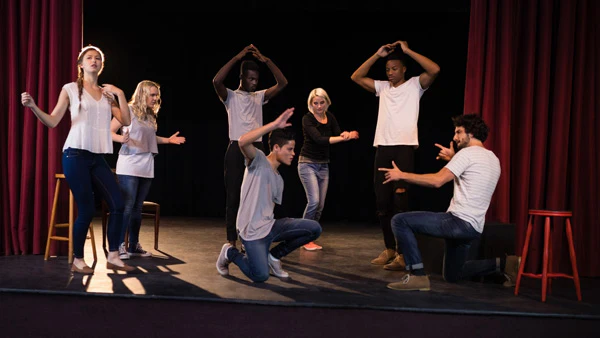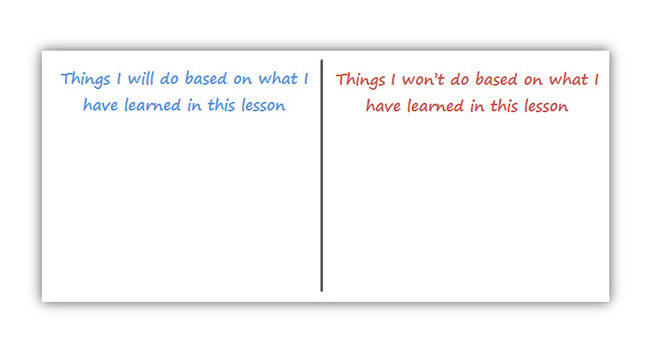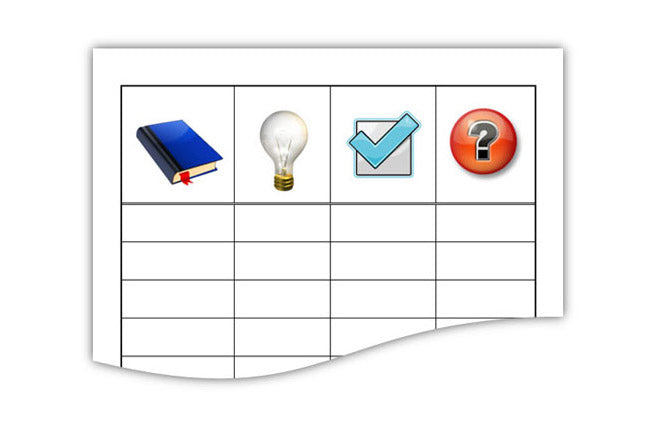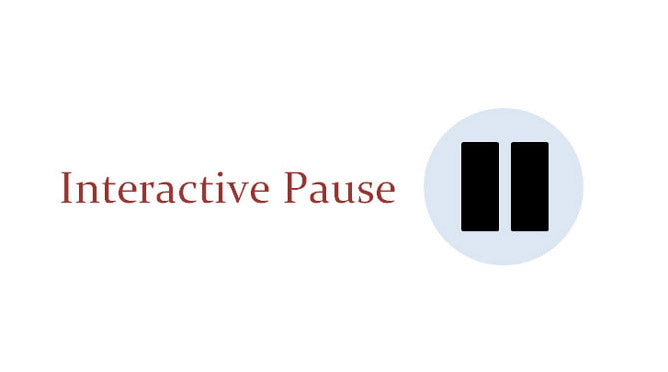Purpose
To reduce learner passivity and increase interaction and reflection, a technique known as the “Three Minutes Pause” is very useful. The idea is that after covering a topic or a complex concept, you pause and let the participants ponder over what has been discussed in a systematic way. This allows participants to clarify areas they may not have understood well and prepares them for the next part. The interaction and expression of ideas also helps memorisation of the content.
This technique is particularly useful for lectures since they are usually very passive and encourage non-participation. The Three Minutes Pause allows you to bring interactivity into a lecture without much time cost while significantly helping the audience to understand and memorise the content. It also allows you to monitor participants and receive feedback about areas that you may need to expand on more.
Objective
Pause for three minutes after getting trained or lectured on complex content, and reflect within a group to better understand the concepts presented before moving on to the next topic.
Setup
- After covering the content state that you are now going to have the Three Minutes Pause.
- Divide the participants to groups of 3 or 4.
- Explain that groups have 3 minutes to consider the following:
- Summarise the key concepts covered so far
- What is the main idea?
- What is the main goal?
- Why should we care?
- How can this help us?
- What problem does it solve?
- Make associations between the new concepts and prior knowledge on the topic
- How does the new concept relate to other concepts?
- What does this concept remind you of?
- What can you add?
- How impressed are you with the concepts so far?
- What are the potentials?
- Ask clarifying questions to better understand the concept
- Was the concept clear?
- Does it make sense?
- Can you see how this fits with the rest?
- Summarise the key concepts covered so far
- After about three minutes, get everyone back and continue with the next topic of training or lecturing.
Timing
Explaining the Exercise: 0 minutes
Activity: 3 minutes
Group Feedback: 0 minutes
Discussion
N/A
Comments
By hanifah @ Thursday, June 21, 2012 10:17 PM
i'm interested to apply this strategy in my thesis and i want to use this article as my resources... but this article don't have references.. can you complete it with references? thanks before
By Ehsan Honary @ Friday, June 22, 2012 9:59 AM
Hanifah, see the following for references on the technique described above and other strategies:
Buehl, D. (2001) "Classroom strategies for interactive learning", 2nd Ed, Newark, DE: International Reading Association.
Soft Skills Training Materials
Get downloadable training materials
Online Train the Trainer Course:
Core Skills
Learn How to Become the Best Trainer in Your Field
All Tags
Training Resources for You

Course Design Strategy
Available as paperback and ebook

Free Training Resources
Download a free comprehensive training package including training guidelines, soft skills training activities, assessment forms and useful training resources that you can use to enhance your courses.

Our Comprehensive Guide to Body Language

Train the Trainer Resources
Get Insights - Read Guides and Books - Attend Courses
Training Materials
Get downloadable training materials on: Management Training, Personal Development, Interpersonal Development, Human Resources, and Sales & Marketing














Leave a comment
All comments are moderated before being published.
This site is protected by hCaptcha and the hCaptcha Privacy Policy and Terms of Service apply.